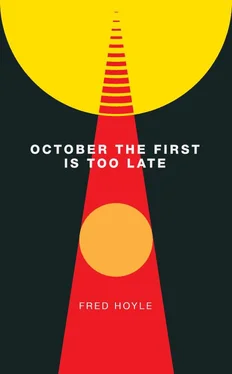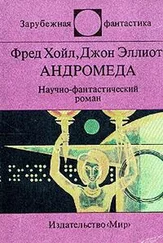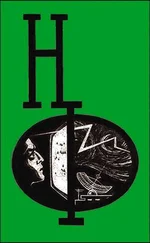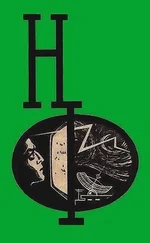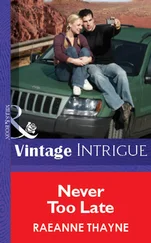We were early astir. After a quick cup of tea, cooking bacon, packing the rucksack, it was still only six a.m. by the time we were ready to be off. The morning was perfect, not a cloud in the sky. But now we had to tackle the problem of the car. The simplest solution seemed to be to continue along the old road, for the best part of a mile, until it joined the surfaced road again. We took it very slowly indeed. Even so it was a wild ride. This was an occasion for a jeep or a Land-Rover. There was a good deal of scraping of the undercarriage but finally we made it without incurring disaster. Ten minutes later we had parked near the rather gloomy Loch Triochtan.
The track up the mountainside appeared unpleasantly steep. Yet once we made a start it turned out to be not as bad as it looked. We followed the bed of a stream for quite a way up a little valley which lay back into the mountain more than we had expected. After maybe a mile we decided to cut out of the stream bed, up to the left. Once again the slope was not too bad. By eight o’clock we reached a little corrie which I guessed to be about a thousand feet below the summit. Ahead of us was a fine rock buttress, presumably the famous Churchdoor Buttress. In the floor of the corrie there were wonderful pools of clear cold water. It was now quite warm and we spent a good half-hour over a leisurely breakfast. For the first time we appreciated the advantages of the caravan. It was much to be preferred to a tent because of the midges. It was to be preferred to an hotel because of the wonderful early start we could make from it. Down in the hotel at Kingshouse, or at Ballachulish, we should only just now be sitting down to breakfast. It was true we were having breakfast, but at nearly three thousand feet, with most of the day’s climbing already done.
We were off again just before nine o’clock, on to a rather loose slope of scree and broken rocks. It took us up for about five hundred feet. Then we were on the summit ridge in bright sunshine. The rocks here were firm and warm. We mounted quickly to the top. It was going to be hot and a haze was already rising. To the north the Mamores and Ben Nevis looked tremendous. To the south were the ragged peaks of Glen Etive. We had no need of hurry, we spent a good hour on the top. In my capacity as quartermaster I produced my bonne bouche, two tins of orange juice. Then we set off along the ridge at a steady easy pace. We went just as we felt like it, down the long shelving ridge towards Glen Etive, then up again to the beginning of the Beinn Fhada ridge. Then down a steepish short slope, up again over a couple of bumps or so, to a little col. Here our route lay down a steep, broken hillside on the left. There was roughly a thousand feet of it and it didn’t look inviting, to untrained men. We had a friendly disagreement as to which was the best way down. John chose a gully between rocky walls, a kind of stone shoot. I thought the more open ground to the right would be better. When I had gone down it for perhaps a hundred feet I realized I was mistaken. As I struggled downward I lost contact with John. When I next saw him he was a long way below me, maybe two or three hundred feet. I stuck at it and at last came to where he was lying resting on a boulder. I suggested we keep going down the widish scoop that lay on our right, that it would take us down to the stream in the big corrie into which we were descending. John laughed. He asserted the scoop would take us down to a cliff edge. I couldn’t see how he knew this but after my mistake on the slope above I didn’t think it wise to argue.
The bottom of the corrie was an amazing affair. It looked as though it was going to be a flat bottom. Then at the last moment the hillside plunged steeply into a little gorge. The gorge ran for more than a mile along what looked like a flat valley. This was the hidden valley I had heard of many times. Whether by luck, instinct, or sheer skill, I don’t know, but John led the way to a point where there was an easy breach in the cliffs where we could get down to the stream and to its opposite side on which we could see a good track.
I was hot with the ridge walk and the steep descent. I suggested we have a bathe in the stream. The idea took on. Within five minutes I was down into one of the clear pools. Being cold is a strange experience when you come to think about it. Being really cold is unpleasant but it isn’t a sharp agonizing business. Cold is a stealthy, unrelenting enemy. The only pleasurable aspect of it, to my knowledge, is when you come piping hot down a mountainside and jump into a pool of icy water. The pleasure lasts no more than thirty seconds. You stick it for another minute and then out you crawl as fast as you can. This was exactly what we did. It was while we were drying off in the sunshine that the odd thing struck me. Back at school we had often stripped our shirts off after football. I knew perfectly well John had a strawberry birthmark, about the size of a half-crown, in the small of his back. There was now no trace of it.
Chapter Three: Intermezzo
Birthmarks and suchlike, ‘marks prodigious’ as the old wizard of Stratford had it, aren’t quite the stuff of polite conversation. Back at school I would not have had the least inhibition. Now it took some effort.
‘Hey, John, didn’t you have a birthmark in the middle of your back?’
‘Yes, of course. What of it?’
‘Well, it isn’t there any more.’
‘Of course it’s there.’
‘I assure you it isn’t.’
‘Must be the strong sunshine. There’s no contrast out here.’
We made our way to the throat of the valley. There was an amazing tangle of great boulders. Threading our way through them we came to easy slopes of grass that led down into Glencoe itself. When we were back in camp I put the kettle on for the much needed cup of tea.
John said, ‘You’d better check that mark.’
I had been right. There wasn’t the least trace of it. Foolishly, I said, ‘You haven’t had it removed or anything?’
‘Of course I haven’t.’
John made no further comment. His face was knit in a tense expression, one I had seen often enough before when he was engaged on some awkward problem. I knew better than to ask him to explain. He scribbled on a big scratch pad as we drank our tea.
I left him at it and drove down the valley to the sea. I took the left fork towards Port Appin. I didn’t quite know what to make of John and his troubles so I put them out of my mind as best I could. I began wondering about the possibilities of a sea symphony. It was certainly an idea but perhaps not a very good one. There is of course great beauty and drama in the sea. Yet the subject is unattractively amorphous, far removed from human problems. In a way it seemed just an escape formula, an excuse for a display of flashing orchestral effects. I doubted whether there was much more scope in this direction.
It was half past six when I returned to the van. John was still figuring. I poured both of us a generous woof of a drink. By the time we were through it I said we’d better be off to the hotel at Ballachulish unless he was keen to cook the dinner.
‘Let’s go then. I want to use the phone.’
I hadn’t expected the hotel to be so full. With mild apprehension I asked if they could manage dinner for the two of us. A woman said she would see and would we like a drink in the meantime? We had the drink and the woman came back. Yes, they could manage dinner but we’d have to wait until about a quarter past eight.
‘I’ll do my phoning now,’ grunted John when she’d gone.
He left me in a milling crowd, apparently talking for the most part about their experiences on the road. There seemed not the slightest appreciation of the magic of a wonderful day spent in one of the most beautiful places on Earth. At half past seven somebody started bashing away at a gong. All but three or four of the company drifted out of the bar. There was an upright piano along one side of the room. I opened the lid and fingered the keys in an idle fashion. ‘Do you play?’ asked a middle-aged woman. For answer I pulled up a chair and settled into a number from one of the latest shows. The piano was of the honky-tonk variety which I never can resist. It was gloriously out of tune. I meandered through two or three numbers and they loved it. The woman’s husband, or so I took him to be, said, ‘Have a drink?’ I asked for half a pint of bitter. I was sipping it, making polite conversation, when John returned. I could judge nothing from his face.
Читать дальше
